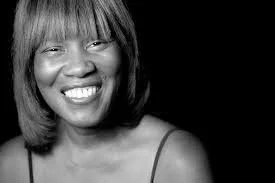A CONVERSATION WITH PATRICIA SMITH
Patricia Smith is a national award-winning poet, author, and spoken-word performer. She has authored multiple books including Incendiary Art, which won the Kingsley Tufts Poetry Award, Shoulda Been Jimi Savannah, winner of the Lenore Marshall Prize from the Academy of American Poets, and Blood Dazzler, which was nominated for a National Book Award. Her work has appeared in the New York Times, the Washington Post, the Paris Review, and many more. She has received numerous accolades and awards such as a 2014 Guggenheim fellow, a 2016 Civitellian, and a 2012 fellow at MacDowell and Yaddo, and has won the Pushcart Prize twice. She also teaches English at the City University of New York, and lectures creative writing at Princeton University.
Here is an excerpt from Black, Poured Directly into the Wound, which appeared in the 2017 POETRY issue from the Poetry Foundation:
“Will she make it through?
Is this how the face slap of sorrow changes the shape of a
mother? All the boys she sees now are laughing, drenched in red.
Emmett, in dreams, sings I am gold. He tells how dry it is, the prairie.”
What would you say inspires you to write?
“You have to get to a point where you have to be able to see poetry and everything, otherwise you will spend too much time looking and waiting for inspiration to come down from above. I love waiting for inspiration to come down and strike you, like a bolt of lightning or something, and you can't do that. So it's what I call learning, to look at things like a flower. You know, you look underneath things, behind things, around things and you find something that looks different or looks magical or looks like you can grab onto it and make it turn into something different. I wasted too much time thinking that the exploration had to be divine. So I don't do much waiting around. I try to turn ordinary things into pieces.”
Take us through your writing process.
“One of the things that happened was because of slam, because what you want to do with a slam poem is you want to drop the mic at the end. You’re always really concerned about your last line. Often, I will write the last line first and then write back up into the poem because I'm very concerned about how people walk away from the poem and what they take with them. So what's really the most interesting thing is hooking them into the beginning and not leaving them deflated at the end. You have to have just as much energy at the end that you did at the beginning.”
How would you begin to make niche or more specific subjects understandable to a wider audience?
“In my poetry class at Princeton, I was with molecular biologists, I was with people who want to be diplomats, I have computer people, and I tell them that I want them to look not at what they're doing now, but at the real world moment. You know, for instance, a computer scientist says, ‘my parents took me to some game place a long time ago and there was a computer there, and I pressed the button and across the room, robots moved.’ And he never forgot that and grew up thinking, ‘now I want to help medicine. I want to do this in medicine.’ So I think no matter where you are, you have a vocabulary that's particular to what you do. There are lyrical things about the vocabulary, there are places within the language for people who don't know that particular thing to enter. I go to that place every time I do a poem, I try to remember what drove me to the keyboard in the first place. And I think that's the kind of energy that you have to have no matter what you do. You can make your language even though I don't initially understand it. You can make it beautiful to me and you can make me want to pave a road for myself into it and everyone’s about it.”
How would you characterize your relationship with the work that you create?
“I don't think I'm ever really satisfied with it. I think if I ever get to a point where I say, ‘Oh, this is perfect,’ or, ‘I'm satisfied,’ I've done something wrong. There are just too many people, and too much work to learn from people I admire, who are just like beacons to me. No matter how you get there, there is somebody up there, you know? So I think my relationship is that it is the best that I can do now. And what's exciting about it is that I know that it can always give something more.”

